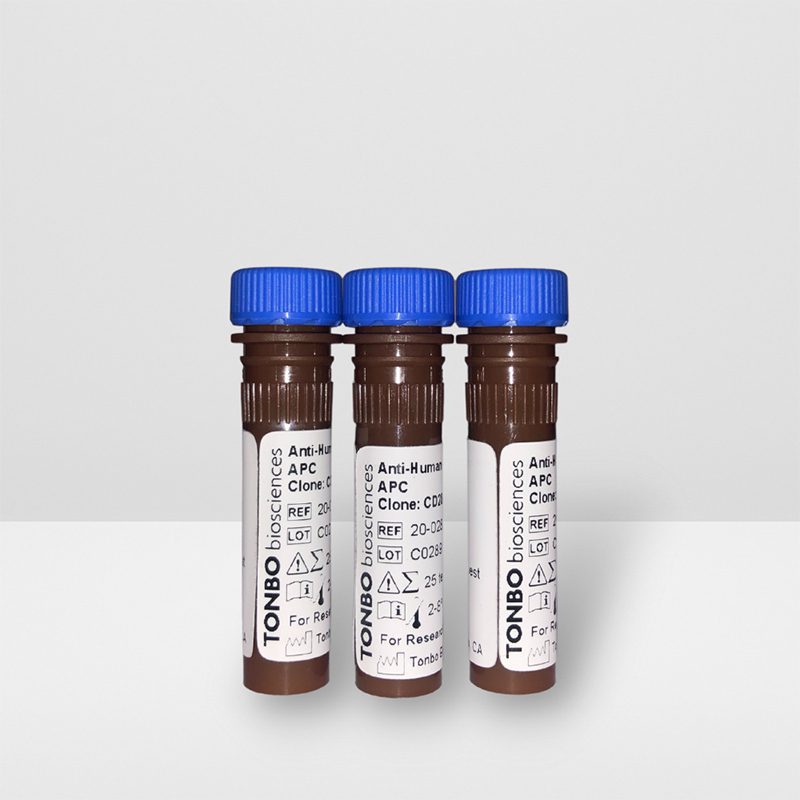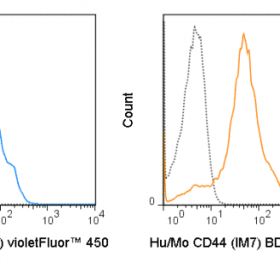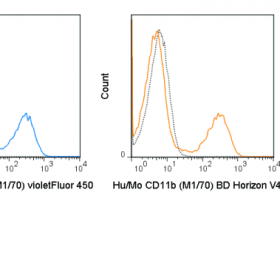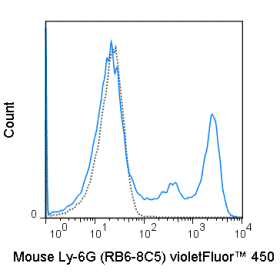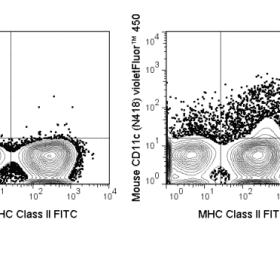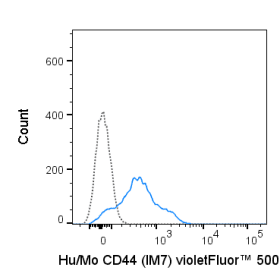| Cat No. | Size | Price |
|---|---|---|
| 35-0036-T025 | 25 tests | $64.00 |
| 35-0036-T100 | 100 tests | $139.00 |
Description
The SK7 antibody is specific for human CD3e, also known as CD3 epsilon, a 20 kDa subunit of the T cell receptor complex, along with CD3 gamma and CD3 delta. These integral membrane protein chains assemble with additional chains of the T cell receptor (TCR), as well as CD3 zeta chain, to form the T cell receptor – CD3 complex. Together with co-receptors CD4 or CD8, the complex serves to recognize antigens bound to MHC molecules on antigen-presenting cells. These interactions promote T cell receptor signaling (T cell activation), inducing cell proliferation, differentiation, production of cytokines or activation-induced cell death. CD3 is differentially expressed during thymocyte-to-T cell development and on all mature T cells.
The SK7 antibody is a widely used phenotypic marker for human T cells. This antibody may induce T cell activation in the presence of monocytes. The antibody has also been demonstrated to be cross-reactive with Chimpanzee CD3. Binding of clone SK7 can be blocked by an alternative Anti-Human CD3 clone, OKT3. Please choose the appropriate format for each application.
Product Details
| Name | FITC Anti-Human CD3 (SK7) |
|---|---|
| Cat. No. | 35-0036 |
| Alternative Names | Leu-4, T3 |
| Gene ID | 916 |
| Clone | SK7 |
| Isotype | Mouse IgG1, kappa |
| Reactivity | Human |
| Cross Reactivity | Chimpanzee |
| Format | FITC |
| Application | Flow Cytometry |
| Citations* | McMichael AJ, Beverly PCL, Gilks W, et al, ed. Leukocyte Typing III: White Cell Differentiation Antigens. New York: Oxford University Press; 1987.
Kaneoka H, Perez-Rojas G, Sasasuki T, Benike CJ and Engleman EG. 1983. J Immunol. 131: 158–164. (in vitro activation) Haringman JJ, Vinkenoog M, Gerlag DM, Smeets TJM, Zwinderman AH and Tak PP. 2005. Arthritis Res Ther. 7(4): R862-R867. (Immunohistochemistry – frozen tissue) Goval J-J, Greimers R, Boniver J and de Leval L. 2006. J Histochem Cytochem. 54(1): 75-84. (Immunofluorescence – frozen tissue) Wrann CD, Laue T, Hubner L, Kuhlmann S, Jacobs R, Goudeva L and Nave H. 2012. Am J Physiol Endocrinol Metab. 302(1): E108-E116. (Flow Cytometry) Soto PC, Stein LL, Hurtado-Ziola N, Hedrick SM and Varki A. 2010. J Immunol. 184(8): 4185-4195. (Flow Cytometry – Chimpanzee) |
Application Key:FC = Flow Cytometry; FA = Functional Assays; ELISA = Enzyme-Linked Immunosorbent Assay; ICC = Immunocytochemistry; IF = Immunofluorescence Microscopy; IHC = Immunohistochemistry; IHC-F = Immunohistochemistry, Frozen Tissue; IHC-P = Immunohistochemistry, Paraffin-Embedded Tissue; IP = Immunoprecipitation; WB = Western Blot; EM = Electron Microscopy
*Tonbo Biosciences tests all antibodies by flow cytometry. Citations are provided as a resource for additional applications that have not been validated by Tonbo Biosciences. Please choose the appropriate format for each application and consult the Materials and Methods section for additional details about the use of any product in these publications.
[accordions]
[accordion title=”Protocols”]Technical Date Sheet[/accordion]



